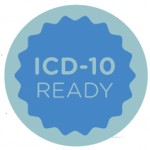The transition to ICD-10 is not just another yearly diagnosis codes update; it is a complete overhaul. This not only will affect providers, but also all payers, vendors and stakeholders are being affected by the expanded ICD-10 code sets through medical coding operations, software systems, reporting, administration, registration and more. With approximately 20 days before…









